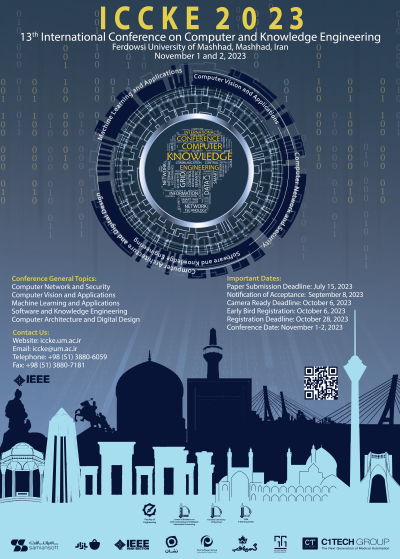0% Complete

Authors :
Keywords :
Abstract :
List of archived papers
Maria Salehpanah - Jafar Tanha - Zahra Jafari - SeyedEhsan Roshan - Sajad Rezaei
Javad Dogani - Farshad Khunjush
Parnian Rahimi - Marjan Naderan - Amir Jamshidnezhad - Shahram Rafie
Erfan Akbarnezhad Sany - Fatemeh Naserizadeh - Parsa Sinichi - Seyyed Abed Hosseini
Avisa Fallah - Ali Keramati - Mohammad Ali Nazari - Fatemeh Sadat Mirfazeli
Reza Latifi - Mahmoud Naghibzadeh
Hamed Mahmoudi - Behrouz ShahgholiGhahfarokhi
Maliheh Araghchi - Nazbanoo Farzaneh
Ali Karimi - Ramin Toosi - Mohammad Ali Akhaee
Mohammad Mehraeen - Laya Mahmoudi - Mohammad Hossein Sharifi




